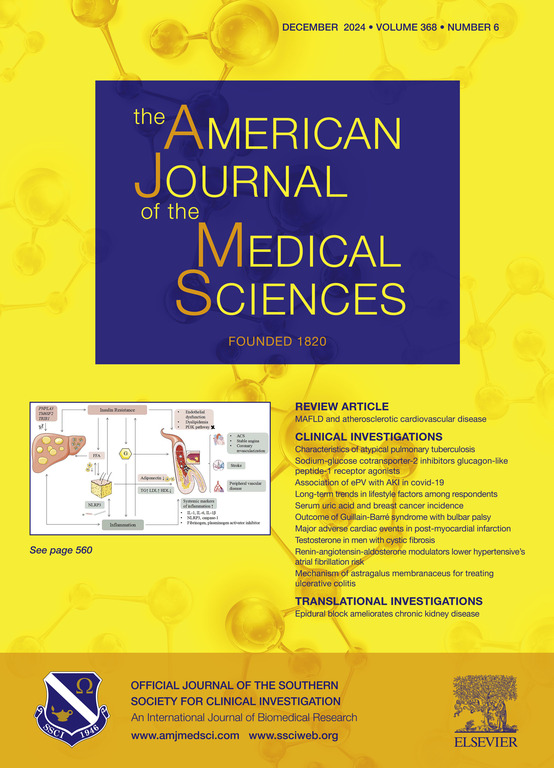Risk prediction model for adult intolerance to enteral nutrition feeding – A literature review
IF 1.8
4区 医学
Q2 MEDICINE, GENERAL & INTERNAL
引用次数: 0
Abstract
Enteral nutrition is an important clinical nutritional supplementation method, especially for adult patients who are unable to eat normally or require additional nutritional support. However, many patients experience intolerance to enteral nutrition, such as delayed gastric emptying, bloating, and diarrhea, which not only affect the patient's nutritional status but also increase the risk of medical complications. In recent years, medical researchers have been dedicated to identifying and analyzing various factors that contribute to enteral nutrition intolerance, including the patient's disease status, nutritional formula, feeding method, and rate. In addition, research is also exploring the establishment of risk prediction models to more accurately predict which patients may develop enteral nutrition intolerance. These models typically combine clinical parameters, biomarkers, and patient individual characteristics, aiming to assist clinicians in better planning and adjusting nutritional treatment plans, thereby reducing the occurrence of intolerance events. This review summarizes the research progress on enteral nutrition intolerance in adult patients, with a focus on the latest developments in intolerance factors and risk prediction models, providing valuable guidance for clinical practice and helping improve patients' nutritional status and overall health.
成人肠内营养喂养不耐受风险预测模型——文献综述。
肠内营养是临床重要的营养补充方法,特别是对于不能正常进食或需要额外营养支持的成年患者。然而,许多患者出现肠内营养不耐受,如胃排空延迟、腹胀、腹泻等,不仅影响患者的营养状况,而且增加了医疗并发症的风险。近年来,医学研究人员一直致力于识别和分析导致肠内营养不耐受的各种因素,包括患者的疾病状态、营养配方、喂养方法和发生率。此外,研究还在探索建立风险预测模型,以更准确地预测哪些患者可能发生肠内营养不耐受。这些模型通常结合临床参数、生物标志物和患者个体特征,旨在帮助临床医生更好地规划和调整营养治疗计划,从而减少不耐受事件的发生。本文综述了成人肠内营养不耐受的研究进展,重点介绍了不耐受因素和风险预测模型的最新进展,为临床实践提供了有价值的指导,有助于改善患者的营养状况和整体健康状况。
本文章由计算机程序翻译,如有差异,请以英文原文为准。
求助全文
约1分钟内获得全文
求助全文
来源期刊
CiteScore
4.40
自引率
0.00%
发文量
303
审稿时长
1.5 months
期刊介绍:
The American Journal of The Medical Sciences (AJMS), founded in 1820, is the 2nd oldest medical journal in the United States. The AJMS is the official journal of the Southern Society for Clinical Investigation (SSCI). The SSCI is dedicated to the advancement of medical research and the exchange of knowledge, information and ideas. Its members are committed to mentoring future generations of medical investigators and promoting careers in academic medicine. The AJMS publishes, on a monthly basis, peer-reviewed articles in the field of internal medicine and its subspecialties, which include:
Original clinical and basic science investigations
Review articles
Online Images in the Medical Sciences
Special Features Include:
Patient-Centered Focused Reviews
History of Medicine
The Science of Medical Education.

 求助内容:
求助内容: 应助结果提醒方式:
应助结果提醒方式:


